I recently had the good fortune of interviewing the literary agent, Mark Gottlieb, who has ranked #1 among Literary Agents on Publishers Marketplace. This interview was an eye opener for me. If you’re an author, trust me, you’re going to want to read it.
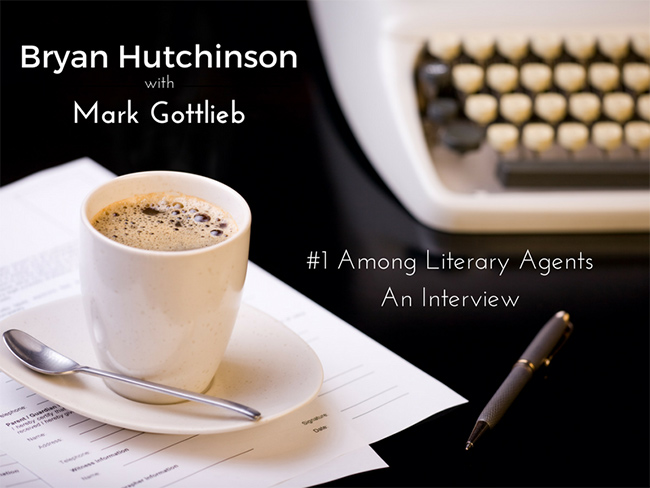
Most agent interviews are boring, so with that in mind, I did not ask Mark what his favorite color is or why he became an agent or anything that would put you to sleep. This interview is filled with serious questions that directly matter to you, as an author considering self-publishing or traditional publishing.
If you’ve considered self-publishing and wondered how many units you would need to sell in order to interest a traditional publisher, today you’re going to find out where that number starts.
You might not like all of the answers, but I will tell you this, as an author, you need to know them. And there are very few agents on the planet that know the answers as well as Mark does. He’s a straight shooter and not interested in blowing any smoke, so strap in and become informed.
Background:
Mark Gottlieb is a graduate of Emerson College, where he was a founding member of the Publishing Club, later its President, overseeing its first publication and establishing the Wilde Press. He began his career as an assistant to the Vice President of the Berkley imprint at Penguin, working with leading editors.
Mark currently works at the #1-ranked literary agency, Trident Media Group. TMG represents over 1,000 bestselling and emerging authors in a range of genres of fiction and nonfiction, many of whom have appeared on the New York Times Best Sellers Lists and have won major awards and prizes, including the Pulitzer Prize, the National Book Award, the National Book Critics Circle Award, the P.E.N. Faulkner Award, the P.E.N. Hemingway Award, The Booker Prize, and the L.A. Times Book Award, among others.

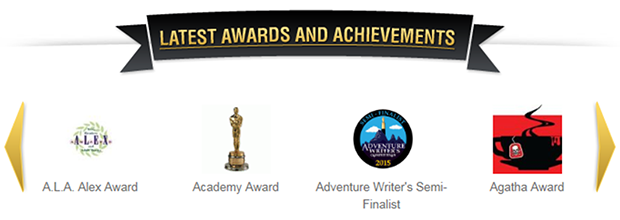
From TMG Homepage
The Interview:
Q1 Bryan:
There are a lot of disillusioned authors who are tired of asking agents and publishers to pick them. And since it’s so easy to self-publish today, why should an author still hire an agent?
Mark:
Yes, it is all too easy for an author to feel discouraged and turn to self-publishing. However, many successful self-published authors eventually go into traditional publishing in order to take advantage of having a team of professionals who help them take their work to the next level.
A literary agency with industry knowledge and expertise can bring a huge value add to the table for an author, evidenced by many of the success stories we’ve created for our clients, the bulk of which are award-winning and bestselling authors. We’ve actually built a lot of self-published success stories into mega-bestsellers, giving authors a Godzilla-like footprint in the industry.
Trident Media Group is a full-service literary agency for authors, handling accounting, legal review, management, foreign rights (books in translation), book-to-film/TV, audio books, etc. We’re also a literary agency with tremendous clout in the industry, so we can get many things for authors from publishers and film / TV buyers that an author otherwise would not be able to get on their own.
I’d like to think that a literary agency would save an author a lot of headaches in order to help the author focus in on their own writing, thereby allowing the author to become more prolific. Meanwhile, the literary agent would work in concert with their subsidiary rights people and departments within the literary agency. In looking at a literary agent and considering paying them a commission on a deal, an author should be asking what they stand to gain in having a literary agent.
Q2 Bryan:
When it comes to royalties, there’s a lot of confusion out there, but it seems most authors believe their royalties are higher if they directly publish with Amazon and other self-publishing offerings. What’s the reality and what should authors consider when it comes to royalties?
Mark:
It is no lie that an author receives a larger share of royalties in the digital space in self-publishing, but there’s still a common misconception there. In self-publishing, authors sell in smaller numbers than a literary agent and publisher could do for an author.
Authors that self-publish are primarily in the digital format, rather than being in the other revenue tributaries of major trade publishing. Overall it’s better to diversify one’s publishing portfolio with a major trade publisher, offering various publishing formats, online and physical retailers, etc.
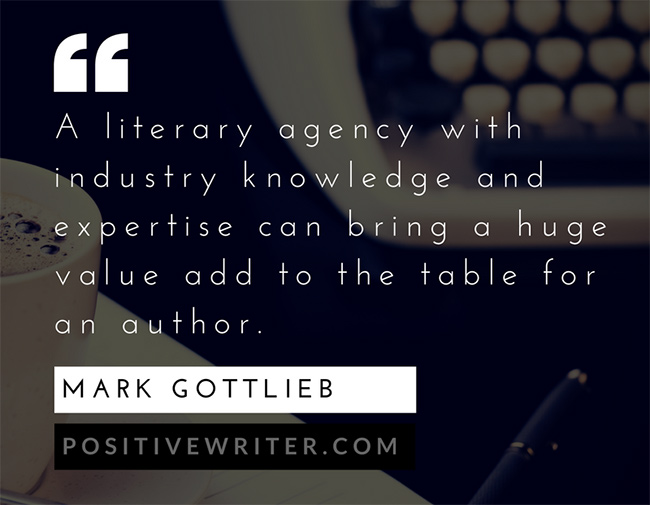
Q3 Bryan:
Even if an author hires an agent and traditionally publishes a book, he or she might still want to self-publish. Where does your agency stand as far as the author’s royalties on the work they publish themselves – does your agency want a cut? Is there an industry consensus on this either way?
Mark:
As a legitimate agency (book publishing’s leading literary agency), we only commission deals we do for a client. I can’t speak for other literary agencies, but we tend to feel that it is wrong of a literary agency to try and commission works self-published by an author when the agent did not play a role in that self-publication.
Self-publishing can be complimentary in a hybrid publishing model between traditional and electronic self-publishing, especially since traditional publishers aren’t really open to publishing novellas and short story collections, even from established authors.
Q4 Bryan:
There’s a popular belief among authors that if they self-publish and demonstrate that their books can generate huge sells, a traditional publisher will take an interest in their work. Is this true? What’s the reality?
Mark:
The self-publishing sphere has become something of what the farm league is to major league baseball, but the odds of that success can be lower than were an author to try and approach a literary agent as an author attempting to make their major debut in trade publishing. The bar is quite high in terms of self-publishing to attract an agent or publisher. An author usually needs to have sold at least 50,000 copies at a decent price.
Q5 Bryan:
The biggest complaint I hear from authors who have traditionally published is that they are left holding the marketing bag. When you sign an author with a traditional publisher what should they expect as far as marketing?
Mark:
Thanks to the tremendous resources available to our company and our Digital Media and Publishing department, Trident Media Group often helps our clients in their marketing/publicity efforts. We also try to put the publisher on the hot seat in encouraging them to perform marketing/publicity tasks for the author, by sharing ideas and having in-depth meetings with publishers.
Trident will also make recommendations to our clients on how they can think about improving their social media presence and look to online efforts to market / promote their books. Otherwise, book publishers normally devote their marketing dollars and other resources toward authors that are huge successes or are making a major debut.
We at Trident might even recommend a private book publicity firm to a client, but that doesn’t come cheap. An author should still know that their role in marketing and promoting the book is integral to the process since, at the end of the day, readers / fans will want to hear from the author.
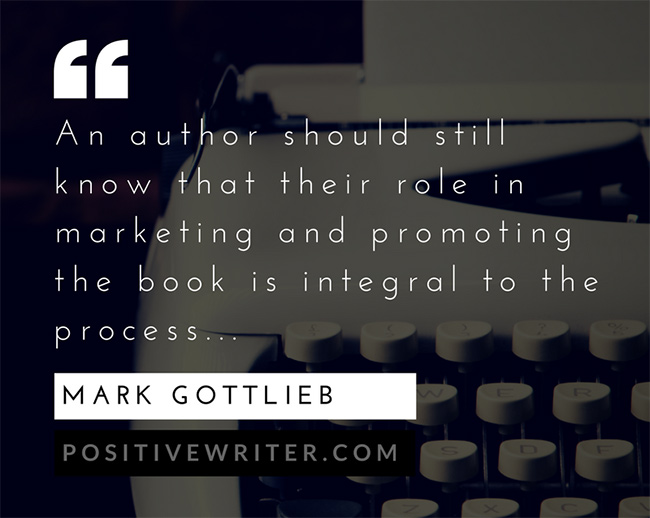
Q6 Bryan:
A lot of traditionally published authors complain that their books never see the inside of a bookstore. How can you help authors get their books in stores?
Mark:
This is a pitfall our literary agency has avoided in most instances by having things such as the mandate to publish within a certain timeframe, along with the format of the book written into the agreement with publishers.
As book publishing’s leading literary agency, our business goes to the bottom line of a lot of publishing companies so we are able to get the best form agreements with publishers. Making sure an author’s book gets into stores is also a matter of marrying the book to the right publisher in the first place.
Q7 Bryan:
What is it that makes an agent take notice of one author over another?
Mark:
If an author is involved in the writing community at a grassroots level with conferences, workshops and has published in esteemed literary magazines, that can help. As far as an insider tip goes, it’s great to see an author that comes to us with pre-publication blurbs from bestselling and award-winning authors. So it certainly doesn’t hurt to reach out to well-known authors and ask them to review your work, if they’re interested and if they indicate they do like it, see if they’ll provide a short blurb.
Also Listing a few competitive / comparative titles that were bestsellers and / or award-winners, published within the last few years, is also key for a literary agent’s consideration. At the end of the day, though, the manuscript must be an amazing read.
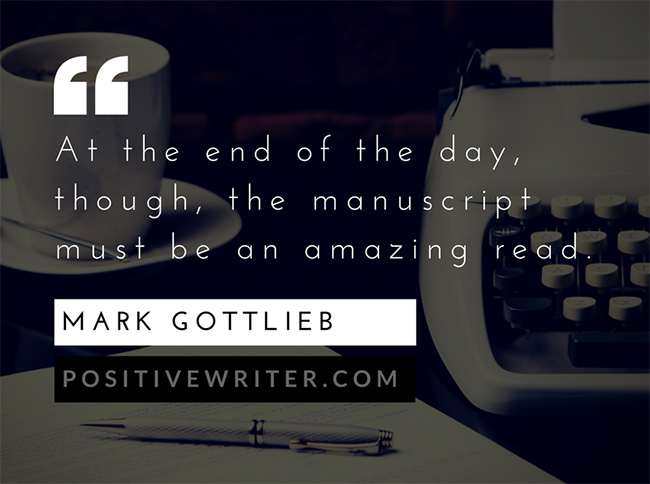
Q8 Bryan:
Could you elaborate on what constitutes an amazing read?
Mark:
What constitutes an amazing read in a manuscript can be a number of factors, but firstly it’s important to be aware of the rules of writing in order to bend and even try to break them, while avoiding potential pitfalls. The Art of Fiction: Notes on Craft for Young Writers by John Gardner is a good book for authors just starting out to keep in the back pocket. I’d also recommend
The Elements of Style and grab yourself the latest edition of The Chicago Manual of Style while you’re at it since most of book publishing conforms to the style manual.
From there an author can begin to learn the bare bones of what goes into writing a book, such as conflict being the main driving force behind plot, the various shapes and positions of the narrative arc, establishing character, etc.
In the case of literary fiction, lending some accessibility is what I find to be important. The literary community as a whole tends to be very insular and the books themselves also read like they’re too cool for school. Uncompromising literary fiction often contains prose that are more concerned with being stylish and flowery, thereby torturing the narrative and losing the reader in the poetics.
A piece of advice I tend to share with clients in such a pitfall is a famed quote from the author Charles Bukowski: “An intellectual says a simple thing in a hard way. An artist says a hard thing in a simple way.” That will help the moral of the book shine through, which is ultimately what attracts me to a manuscript, since many of the books I represent are concerned with important social messages.
For genre fiction and commercial fiction, it is important to be aware of the genre conventions and tropes, in order to either generally avoid them, or spin them in a new and interesting way.
For instance, I find it the strangest thing that in most every zombie novel, the protagonist wakes up in a hospital bed from a coma, to suddenly realize they’re in a world full of zombies. I’m sure that was a neat trope when it started out, since the motif of dreaming/waking kind of plays with the zombie theme in reverse (our protagonist wakes from the world of the living to the dead, whereas his antagonists have fallen asleep from the world of the living to a dream-like state in the world of the dead). Nowadays that trope is just old hat to most readers of zombie books.
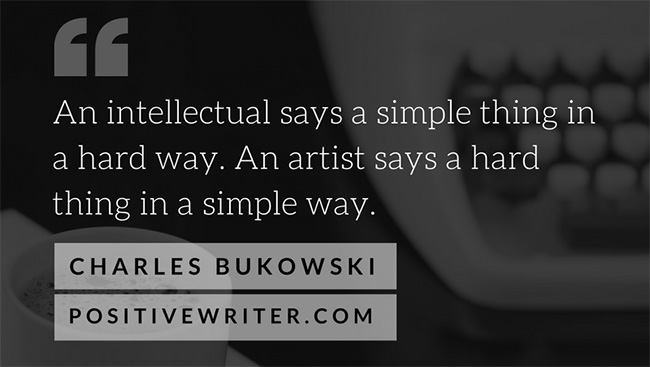
Q9 Bryan:
When should authors start querying agents?
Mark:
In addition to what I mentioned above in terms of what attracts a literary agent to an author, once an author has gone as far as they can go with the writing / editing of the manuscript and honed in on a knock-out query letter / hook, then it is time to begin the process of querying a literary agent.
Q10 Bryan:
Is your agency currently taking manuscript submissions?
Mark:
We are currently accepting submission via our submissions page on our website.
Thanks, Mark! I appreciate your time and I know my readers will gain much insight from your answers.
Readers:
Tell us what you’re currently writing about in the comments. Have you started a book yet? Share a little about it. What’s the premise? We’d love to hear about your story.
